Emergency Dentistry – Albuquerque, NM
We’re Here When You Need Us
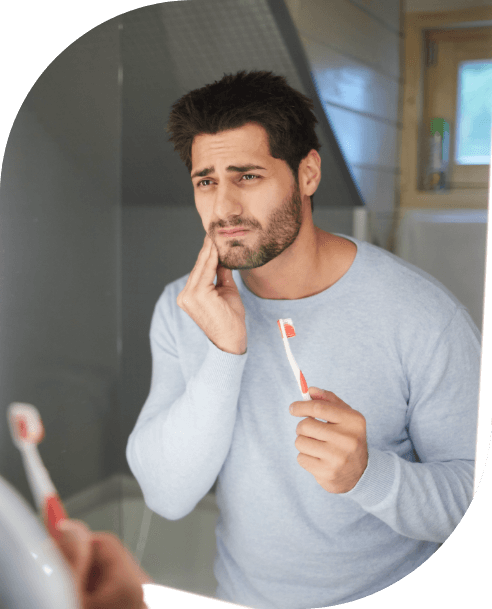
When faced with a dental emergency, you may worry about finding a professional who is open and available to help. Fortunately, Dr. Keanna offers same-day and weekend emergency appointments, making it possible for you to seek help when you need it. No matter if you’re experiencing a serious toothache, knocked-out tooth, or soft tissue injury, our team will provide helpful at-home tips while scheduling you for immediate treatment. To find out more about emergency dentistry, contact us.
Why Choose Natural Dental Services for Emergency Dentistry?
- Same-Day and Weekend Appointments
- Dentist with Decades of Experience
- Safe and Effective Restorative Treatments Provided
How We Treat Dental Emergencies
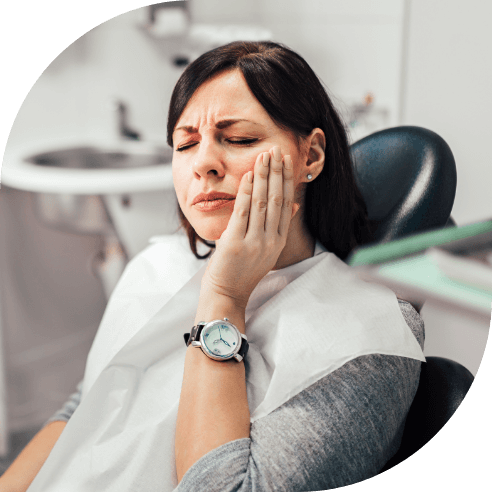
When experiencing a dental emergency, we encourage you to contact our dental office immediately. While you wait for your appointment, we will offer at-home tips you can use to manage your symptoms. Once you arrive at our dental office, Dr. Keanna will examine your oral cavity before working to eliminate pain and discomfort. We’ll then create a treatment plan that uses safe restorative services designed to improve your smile while keeping your total-body health in mind.
The Most Common Dental Emergencies
Dental emergencies come in all shapes and sizes. Dr. Keanna has seen injuries of all types ranging from severe toothaches and broken dentures to chronic jaw pain and knocked-out teeth. While you might not think your injury is serious enough to warrant a visit, it is better to call and schedule an appointment than wait and discover the problem has only worsened. Once we evaluate your situation, we can provide appropriate care to improve your oral health.
Some of the most common dental emergencies include:
Understanding the Cost of Emergency Dentistry
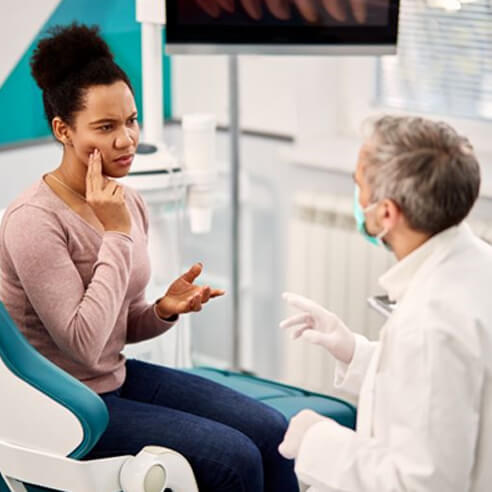
The cost of emergency dentistry varies from case to case. Once Dr. Keanna and our team have a chance to examine your mouth, we will be able to share some specific numbers. We will also make sure you understand your payment options, such as financing or insurance. Additionally, we offer an attractive special for patients who are new to our practice.
Every Dental Emergency Is Different
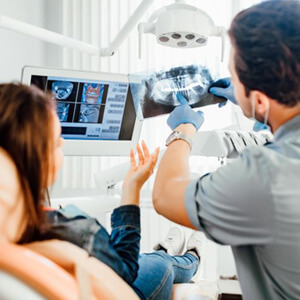
There are many different dental problems that can require emergency care, and they can vary in their severity. A range of treatments may be used to address them. Therefore, we cannot predict costs of emergency treatment before we have a chance to assess the particulars of any given situation.
Generally speaking, a basic emergency exam is affordable. The treatments used to relieve pain and restore oral health, however, can vary widely in their prices. For example, root canal therapy, extractions, and crowns can all have vastly different costs.
You can rely on our team to be straightforward with you about pricing and help you navigate the financial aspect of your care.
Does Dental Insurance Cover Dental Emergencies?
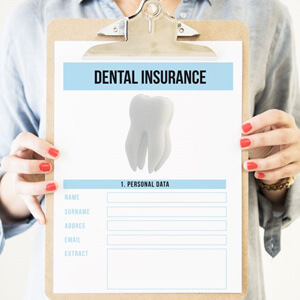
Many dental insurance policies cover the cost of at least one emergency exam per year. Beyond that, they may cover 50% - 80% of the cost of required treatment, depending on the nature of the recommended procedure.
Our team is not in-network with any dental insurance plans, but we still encourage you to share your policy information with us. We can file claims on your behalf and help you take full advantage of available out-of-network benefits.
Other Options for Making Dental Emergencies Affordable

We want you to be able to afford necessary dental treatment, so we offer a few provisions that might make it easier to afford your emergency dental care:
- We have an attractive special for new patients. It is only $79 for a thorough exam and X-rays. An initial exam is an important first step on your path to pain relief and a healthier smile!
- Most patients qualify for financing through a third-party lender. Our team can walk you through the application process. You may be eligible for a low-interest payment plan that works with your monthly budget; you could even have the option of choosing your monthly payment amount! In most cases, you can receive approval in just a few minutes.
Taking Care of Your Smile Can Save You Money
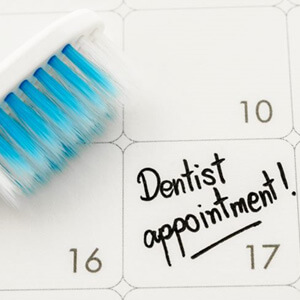
One of the best ways to reduce emergency dentistry costs is by avoiding dental emergencies altogether! Therefore, we strongly encourage patients to take excellent care of their teeth on a daily basis. For example, you should brush at least twice a day and floss daily. A balanced diet is also important.
Additionally, keep in mind that it is best to seek professional assistance as soon as you suspect that something is amiss with your smile. Remember, dental problems only tend to get worse with time! For example, a small cavity could open the way for a major infection. The longer you wait for care, the more likely it is that you will require extensive (and expensive!) treatment.
Keys to Preventing Dental Emergencies

While it’s comforting to know you have someone you can turn to when a dental emergency occurs, it is better to prevent them if you can. Not all injuries are avoidable, but if you want to lower your risk for severe damage, there are steps you can take. From improving your oral hygiene routine to wearing proper mouth protection, being proactive about the safety of your smile will be beneficial in the long run.
Tooth Extractions

One of our goals is to help you keep your natural teeth as long as possible. Unfortunately, a tooth must be removed if it might potentially harm your oral and overall health. Dr. Keanna will safely remove the periodontal ligament for a swifter and more successful procedure. This type of treatment is recommended if gum disease is damaging the bone, wisdom teeth are impacted or painful, or your tooth is damaged and cannot be restored. Our extraction process focuses on atraumatic tooth removal and on removing the periodontal ligament, then we focus on socket preservation. This is an involved process in which the bone is given the nutrients it needs to repair and make its own bone tissue faster. We do not use cadaver or animal derived grafts in our dental office.
Dental Emergency FAQs
Will My Toothache Go Away on Its Own?
Teeth cannot heal themselves, so toothaches do not usually go away on their own. In fact, they are likely to get worse.
Of course, some toothaches do disappear for one of the following reasons:
- The tooth was not damaged. Sometimes, teeth can hurt if the sinuses are congested or nearby soft tissues are injured. As such issues resolve, a toothache can go away.
- The tooth died. If the nerve inside a tooth dies, it can no longer send pain signals to the brain. That is not a good thing. The infection that caused the tooth to die may still be present. It could continue to attack nearby tissues. It might even cause systemic illness.
Any time you have a toothache, it would be wise to seek a dentist’s opinion.
How Should I Sleep with Tooth Pain?
If a toothache is keeping you awake at night, try the following steps:
- Keep your head elevated to reduce blood flow to the aching tooth.
- Take over-the-counter pain relievers.
- Apply a cold compress to the side of your face.
- Place clove oil or an over-the-counter numbing agent on the painful area.
Should I Visit the Emergency Room First for Dental Emergencies?
Most hospital emergency rooms are not equipped to handle toothaches and other dental emergencies. They might give you pain medication and tell you to visit your dentist at the earliest opportunity. For most oral health issues, it is best to go straight to a dentist.
However, there are some exceptions. If you are experiencing severe bleeding, restricted breathing, a broken jaw, or a high fever as the result of a dental infection, you should go to the ER. Later, you can receive follow-up care from a dentist.
Should Knocked-Out Teeth Be Placed in Water?
Water can damage the root surface cells of a knocked-out tooth, so even though you should keep the tooth moist, you should not use plain water to do so. Rather, try to place the tooth back in its socket or tuck it between your cheek and gums. Alternatively, you could put it in milk or use a tooth preservation kit from a local pharmacy.
